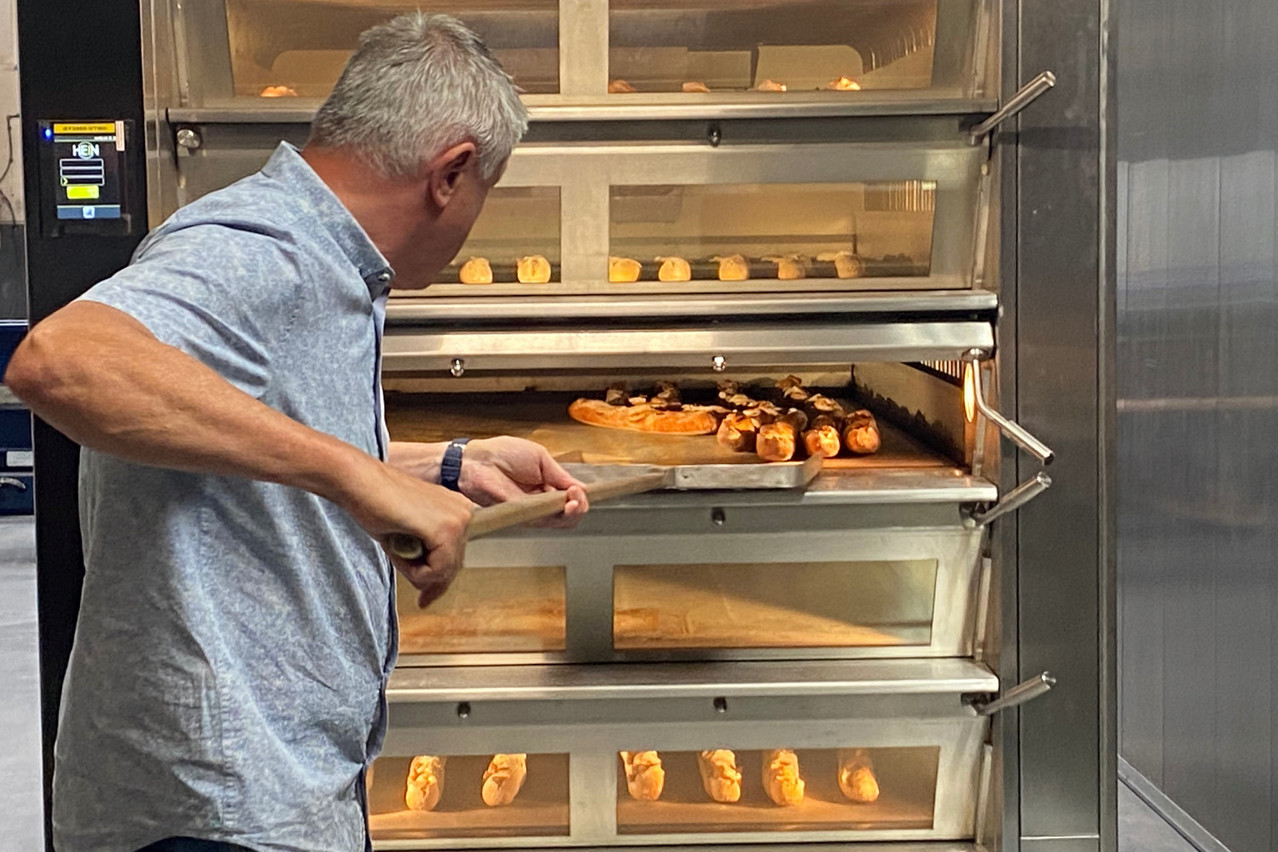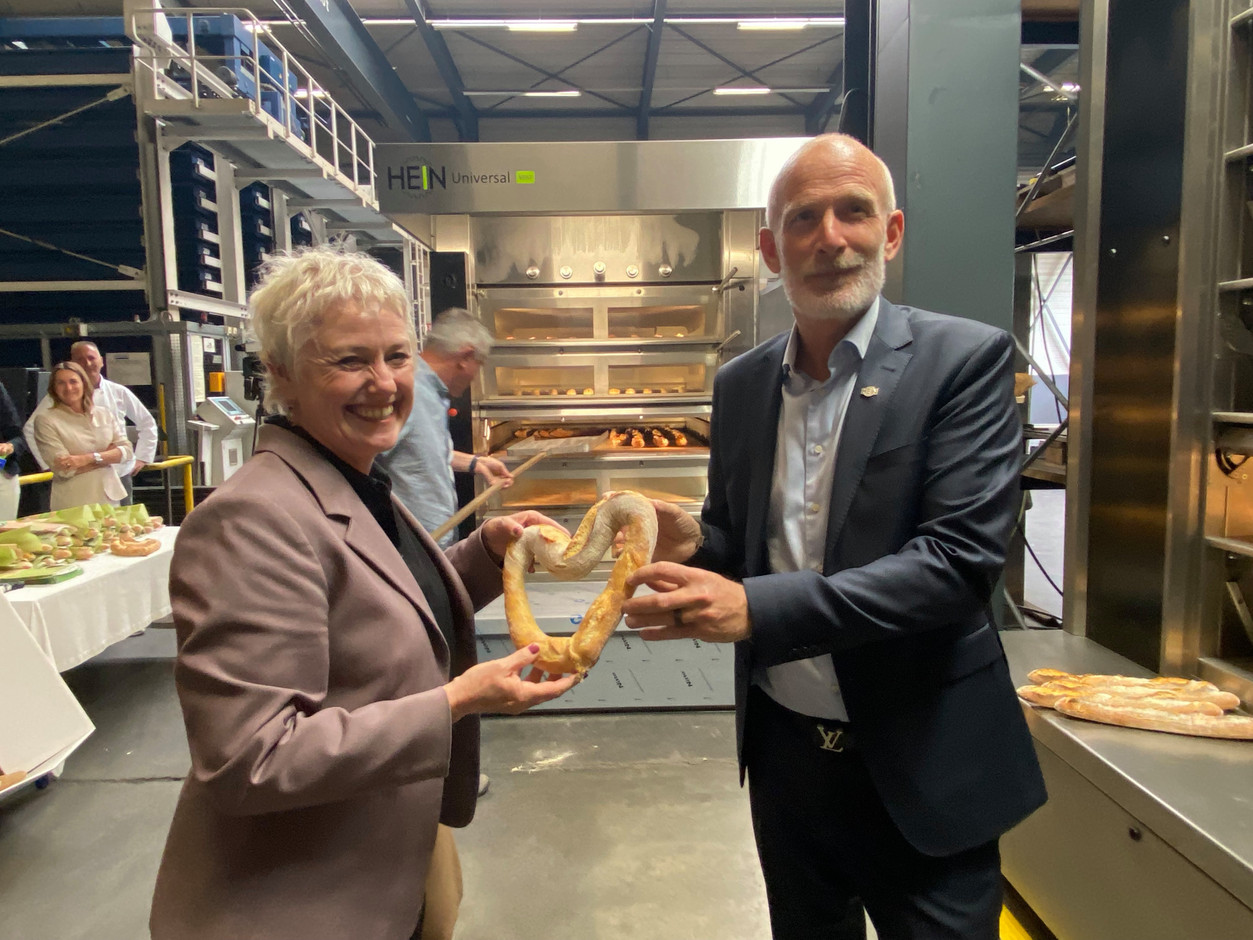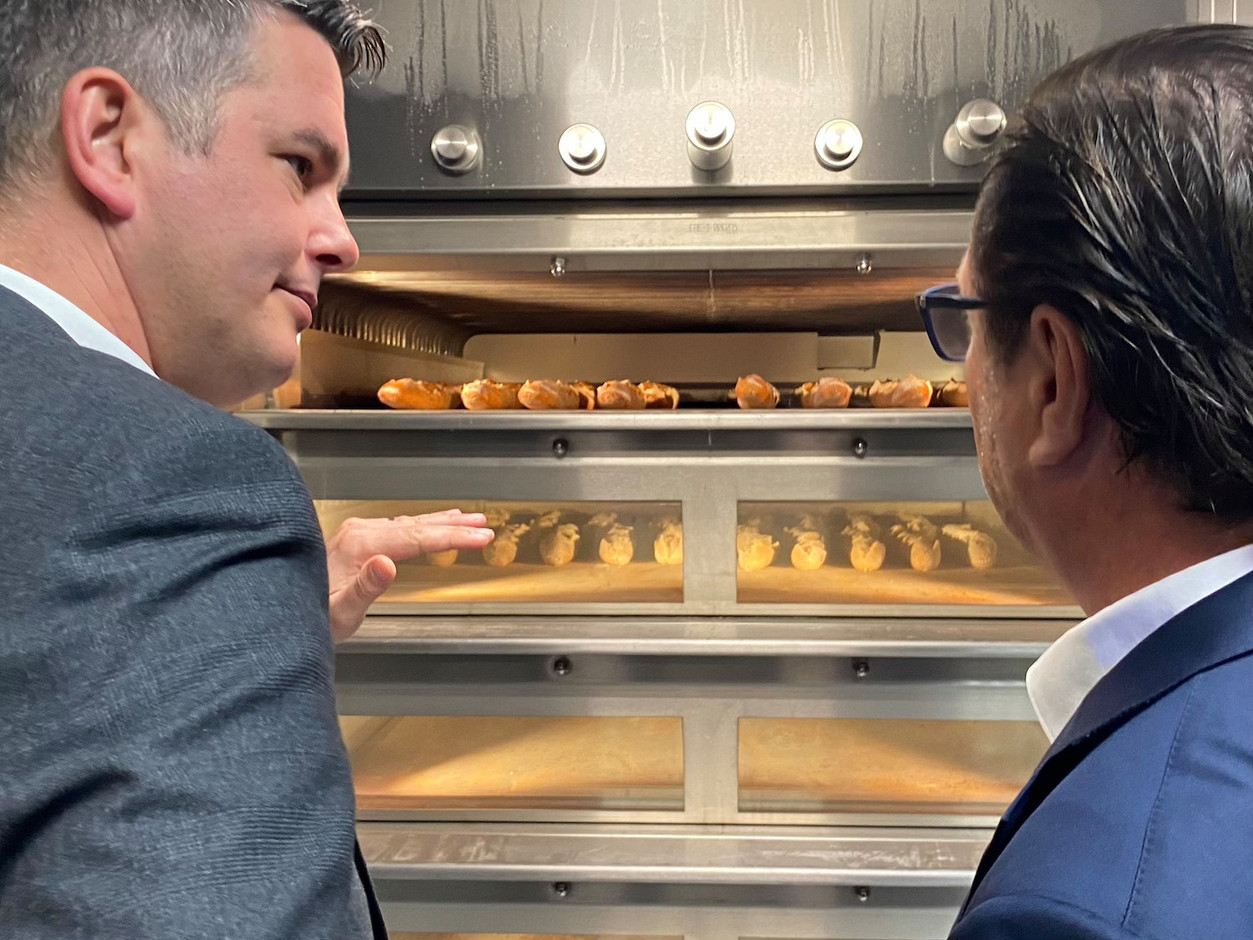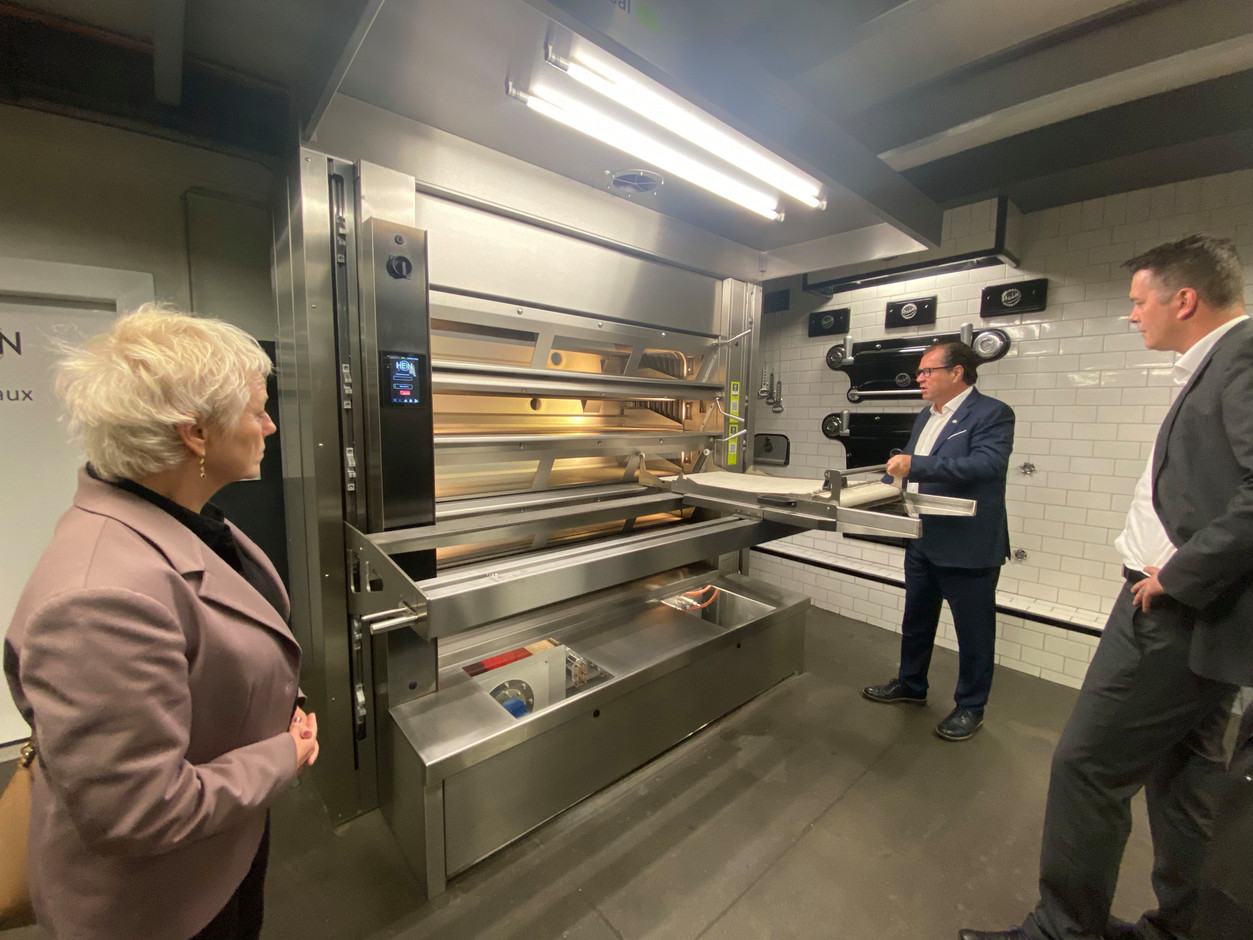The baguette is perfectly golden. Its crust is perfectly shaped. The crumb is perfectly aerated. At 80 degrees when it comes out of the oven, in the industrial hall of Fours Hein in Strassen, it would have been a shame not to bite into it. The only thing missing is the comforting smell of good bread, but the ventilation system instantly swallows up any metal dust.
Ferdinand Hein, the fifth generation to head this family-run SME, leads a tailor-made tour for economy for minister (DP). The company has just delivered to the Grande Boulangerie the oven that will bake several million rolls a day during the Paris Olympics. Whether it’s a “classic” oven, a modern oven heated with pellets and/or an oven powered by green electricity, Fours Hein has seized the opportunity to get help from the public innovation agency Luxinnovation, explains its CEO, Henri Guillaume.
“Innovation is a fundamental added value in the life of a company, especially in the economic context that we have experienced in recent years. It’s also a very complex equation, particularly for small and medium-sized businesses with limited financial and human resources. It’s clear that the financial support from the economy ministry and the backing from Luxinnovation are invaluable to us, and without them we’d be stuck in a cupboard for some time,” says Guillaume.
300 made-to-measure ovens a year
“The Hein group has always wanted to devote a few percent of its annual sales excluding personnel costs [5% this year, editor’s note] to its development division. This has been all the more true since the energy crisis hit Europe. It’s not that we didn’t previously have innovative solutions for reducing energy consumption, but the trend towards greater electrification and a significant reduction in CO2 emissions is not sparing the bakery sector. From 2021, after planning several meetings with the Luxinnovation teams, we were able to submit two projects for support from the ministry of the economy: two zero fossil energy ovens,” he continues.
This is particularly important for the Luxembourg company, which sells 300 ovens a year, generating sales of around €18m. It faces stiff competition from German, French, Italian and Turkish manufacturers.
Luxinnovation presents annual report
On Thursday 4 July in Strassen, economy minister Delles also presented the annual report of the public innovation agency, alongside Luxinnovation CEO .
Fit4Start will be overhauled to make it simpler and therefore more accessible to businesses and a new Fit4AI programme will “enable businesses to understand the opportunities available to them or how to improve their productivity.” Delles also announced assistance accompanied by a new strand of the SME Package: the SMP Package AI “to start something concrete, carry out analysis or raise awareness.” Administrative simplification is also meant to support these schemes.
325 companies supported by 2023
Delles added that 325 businesses had received support by 2023, although it was not clear how this figure should be qualified: businesses have very different needs in this area, different ways of embarking on the dual transition, and different and varied financial and human resources.
At the head of 91 experts, Baillie reiterated the agency’s dual role, “to help companies--whatever their level of maturity--to take advantage of the many tools available”, but also “to detect loopholes and solutions in the ecosystem.”
“We also need to know the companies and the challenges they face. We have carried out 15 sectoral studies, we have 15 prospecting lists,” she said. “With 86 companies taking part in the Fit4 Performance programme, that’s not enough!”
“The support given to companies seeking to obtain European subsidies enabled 126 of them to obtain almost €61m last year,” she said, while 335 companies were supported within the framework of the clusters. A further 28 seized the opportunity to benefit from the Luxembourg Digital Innovation Hub (L-DIH, which was set up with Fedil, the Chamber of Commerce and the National Research Fund), joined by the House of Cybersecurity, the Luxembourg Institute of Science and Technology (List), the University of Luxembourg and the university’s Competence Centre. Luxinnovation also coordinates the National Supercomputing Competence Centre (with the university and Luxpovide) and runs the Sustainability Innovation Hub and the Klimakt fir Betriber.
Focus on scale-ups
Of the 387 new contacts with companies from 41 countries who might be interested in setting up in Luxembourg, 53 have been supported and eight have actually arrived. Forty-five start-ups were created with the agency’s support and the construction waste recycling unit project will continue in 2024.
New projects include initial discussions with the agricultural sector and Luxinnovation’s contribution to defence efforts in the Nato budget: 91 companies in Luxembourg have been identified as potential participants in this dynamic.
Other subjects “in the oven” include the development of a “scale-up” strike force for fast-growing innovative companies that need much greater financial resources to continue to develop at cruising speed. Following the success of the first Luxembourg Ventures Days in October, .
This article was first published in French on . It has been translated and edited for Delano.






